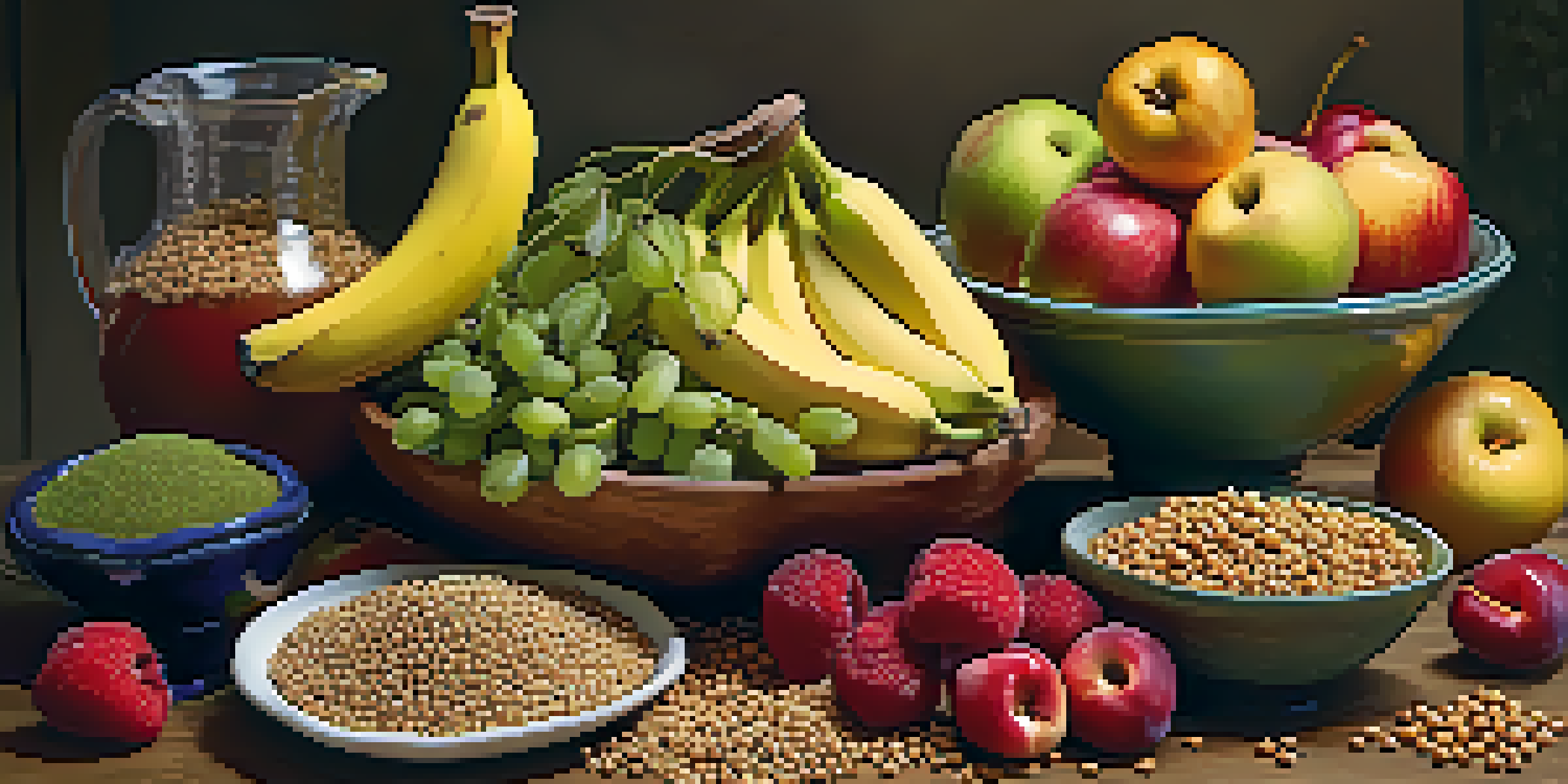The Role of Fiber in a Healthy Plant-Based Lifestyle

What is Fiber and Why is it Important?
Fiber is a type of carbohydrate that the body can't digest, and it plays a crucial role in maintaining overall health. Unlike other carbs that break down into sugar molecules, fiber passes through the digestive system intact, providing various benefits along the way. As part of a plant-based lifestyle, fiber is abundant in fruits, vegetables, whole grains, and legumes, making it a staple for anyone looking to enhance their diet.
Types of Fiber: Soluble vs. Insoluble
There are two main types of fiber: soluble and insoluble. Soluble fiber dissolves in water and can help lower blood sugar and cholesterol levels, while insoluble fiber adds bulk to the stool and aids in digestion. Both types are essential for a balanced plant-based diet, as they work together to support gut health and prevent constipation.
Fiber is Essential for Health
Fiber plays a crucial role in digestion and overall health, making it a vital component of a balanced diet.
Health Benefits of Fiber in a Plant-Based Diet
Fiber is known for its numerous health benefits, particularly in a plant-based diet. It promotes healthy digestion, helps maintain a healthy weight, and can even lower the risk of chronic diseases like heart disease and diabetes. By incorporating fiber-rich foods, individuals can enjoy a variety of flavors while reaping these health rewards.
How Much Fiber Do You Need Daily?
The recommended daily intake of fiber varies depending on age and gender, but a general guideline is 25 grams for women and 38 grams for men. Many people fall short of these recommendations, especially those who don't consume enough plant-based foods. By being mindful of fiber intake and choosing whole, unprocessed foods, it's easier to meet these goals and improve overall health.
Types of Fiber Matter
Understanding the difference between soluble and insoluble fiber is key to optimizing gut health and digestion.
Top Fiber-Rich Foods for a Plant-Based Diet
If you're looking to boost your fiber intake, consider incorporating foods like lentils, chickpeas, quinoa, and chia seeds into your meals. Fruits like apples, bananas, and berries are also excellent choices, as are vegetables like broccoli, carrots, and Brussels sprouts. By mixing these foods into your diet, you can enhance your meals while nourishing your body with essential nutrients.
Tips for Increasing Fiber Gradually
When increasing fiber intake, it's important to do so gradually to avoid digestive discomfort. Start by adding one fiber-rich food to your meals each day, and over time, increase the quantity. Additionally, drinking plenty of water can help your body adjust to the added fiber and keep everything running smoothly.
Boost Your Fiber Gradually
To avoid digestive discomfort, increase your fiber intake slowly while ensuring adequate hydration.
Common Misconceptions About Fiber
Many people believe that all fiber is created equal, but this isn't the case. Some may think fiber can only be found in whole grains, when in fact, fruits, vegetables, nuts, and seeds are also excellent sources. Understanding the diverse sources of fiber can help individuals make more informed dietary choices in their plant-based journey.
Delicious Plant-Based Recipes Packed with Fiber
There are countless delicious plant-based recipes that can help you enjoy the benefits of fiber. Consider whipping up a hearty lentil soup, a colorful quinoa salad, or a refreshing chia seed pudding. These dishes not only taste great but also provide a satisfying way to boost your fiber intake while enjoying wholesome ingredients.